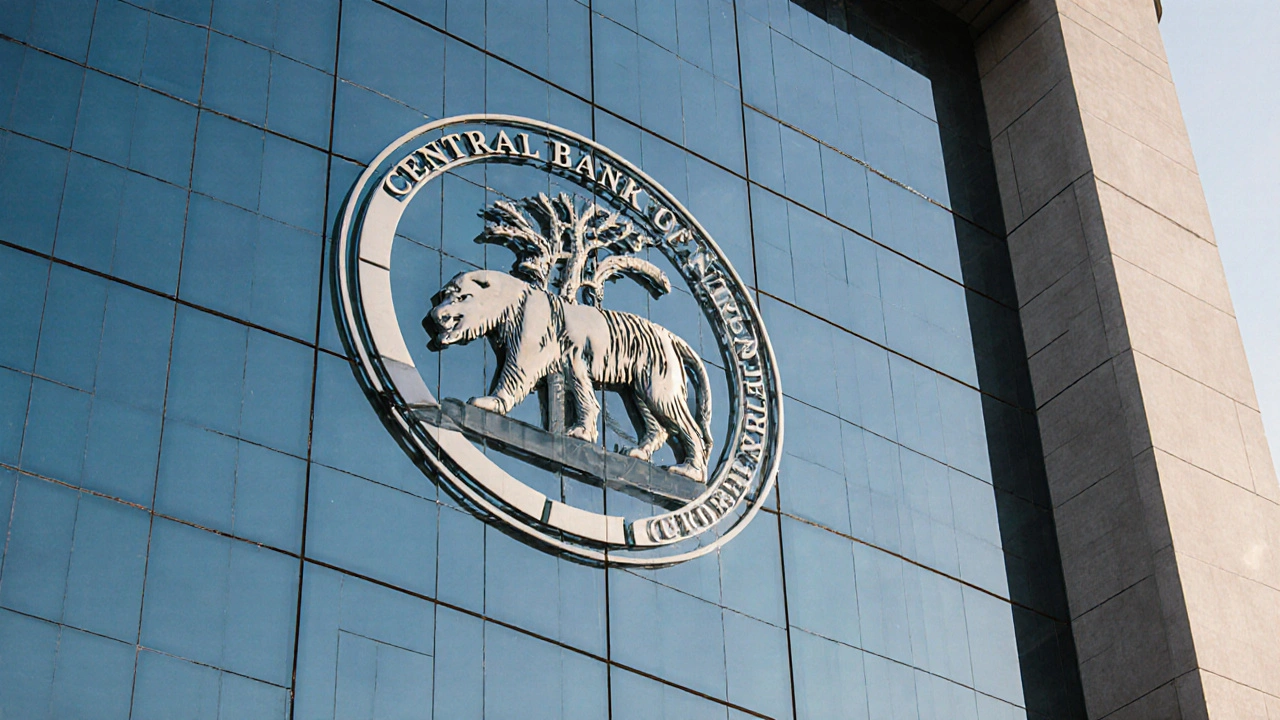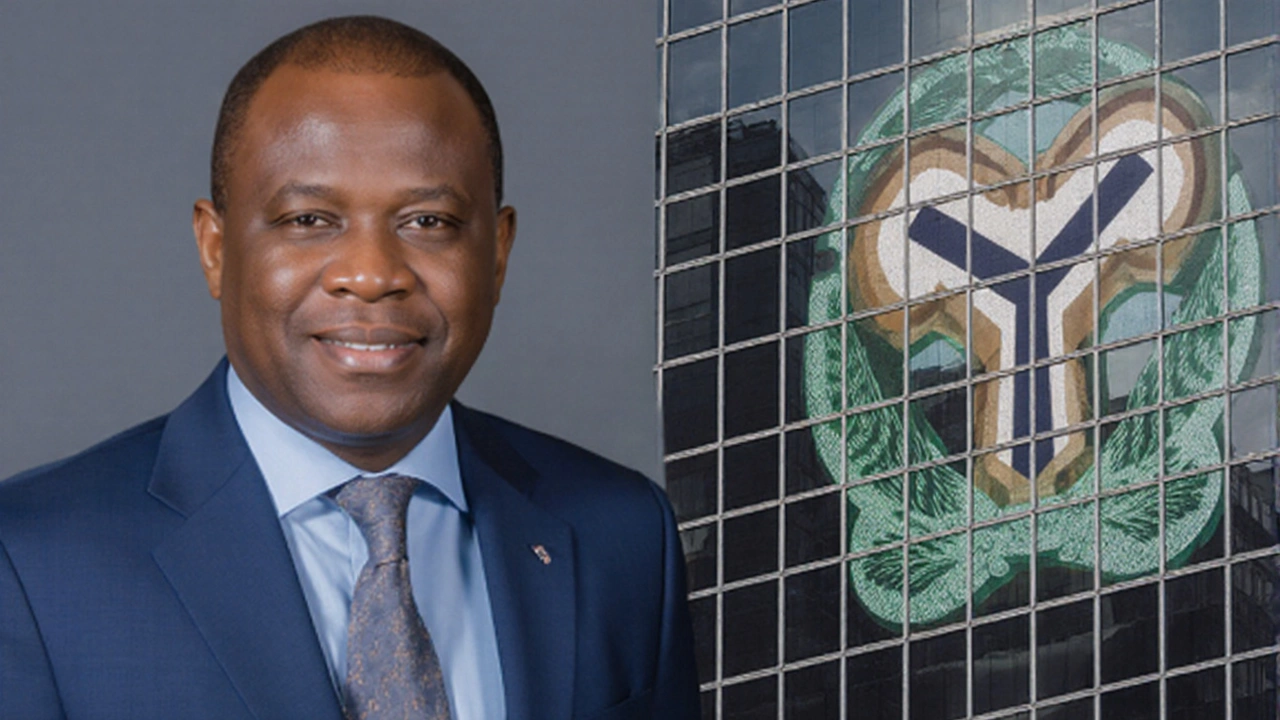
What the numbers are saying
Inflation in Nigeria is finally moving in the right direction. After hitting 21.18% in July, the consumer price index dropped to 20.12% in August – a full point lower. While still high by global standards, that dip is enough to change the conversation at the Central Bank of Nigeria (CBN). Analysts argue that the slowdown hints at the effectiveness of previous rate hikes and tighter liquidity measures.
Beyond inflation, other macro indicators are looking sturdier. The current account balance has narrowed, foreign exchange reserves are ticking up, and industrial output showed modest growth in the last quarter. Together, these signals paint a picture of a Nigerian economy that is beginning to shed some of the volatility it faced earlier in 2025.

How the CBN’s stance could shift
Since the start of the year, the Monetary Policy Committee (MPC) has kept the Monetary Policy Rate (MPR) locked at 27.50%. That rate was reaffirmed at both the February 19‑20 and July 21‑22 meetings. The bank also left its asymmetric corridor unchanged at +500/-100 basis points, and the Cash Reserve Ratio (CRR) stayed at 50% for Deposit Money Banks and 16% for Merchant Banks.
With the new inflation data, the committee faces a dilemma: maintain a strict stance to guard against a resurgence of price pressures, or ease a little to spur credit growth. Governor Olayemi Cardoso is expected to address this balance in the September 23 meeting, the fifth gathering of the year.
Below are the key policy levers that could be tweaked:
- Monetary Policy Rate (MPR) – currently 27.50%; any change would directly affect borrowing costs.
- Asymmetric corridor – the +/- range around the MPR that influences market rates.
- Cash Reserve Ratio – determines how much banks must hold in reserve, shaping liquidity.
- Open market operations – buying or selling government securities to fine‑tune money supply.
Market participants are especially keen on the MPR because even a 25‑basis‑point move can ripple through loan interest rates, mortgage payments, and corporate financing costs. If the CBN decides the inflation trend is sustainable, a modest cut could revive stalled investment projects. Conversely, a hold or even a slight increase would signal a commitment to anchoring price stability, reassuring foreign investors wary of sudden spikes.
Another factor under the microscope is the asymmetric corridor. By keeping the upper bound at +500 basis points, the CBN gives banks room to charge higher rates when needed, while the tighter lower bound (-100 basis points) prevents rates from falling too quickly. Any adjustment here would fine‑tune market expectations without a full‑scale rate change.
Overall, the September meeting is less about shock moves and more about signaling. The committee’s message—whether it leans toward “steady as she goes” or “time to ease”—will shape investor confidence for the rest of 2025 and into 2026. The data so far suggests that Nigeria monetary policy may have a window to calibrate, but the road ahead remains cautious.
Comments (9)
-
Gail Robb September 26, 2025
Everyone is patting themselves on the back for a single percentage point drop, but that's the kind of delusion that keeps economies shackled to endless cycles. The inflation dip is nothing more than a statistical illusion, a fleeting shadow cast by a policy that still drags the nation through a swamp of artificial rates. If the CBN thinks a modest easing will magically resurrect growth, they're buying a ticket to the next crisis. Instead of celebrating, we should be screaming at the systemic inertia that refuses to let real money flow to productive sectors. The asymmetric corridor is a gimmick, a way to pretend flexibility while tightening the noose on borrowers. Stop glorifying a number that barely moves and start questioning the entire rate‑setting ideology that treats Nigerians as lab rats.
-
Pradeep Chabdal September 27, 2025
One must appreciate the delicate balancing act the Monetary Policy Committee attempts, yet the discourse surrounding the recent inflation dip borders on naiveté. While the headline figure suggests improvement, the underlying structural constraints-such as import dependence and fiscal deficits-remain unaddressed. A superficial rate cut would merely mask deeper imbalances, offering a transient sigh of relief before the inevitable resurgence. Hence, prudent continuity, rather than reckless easing, aligns with the long‑term stability that sophisticated economies cherish.
-
andy heri September 29, 2025
Hey folks, it's encouraging to see the CPI sliding, but let’s keep the momentum going with solid support for local businesses. The CBN’s stance can be a catalyst if paired with mentorship programs and affordable credit lines for startups. Remember, empowerment comes from more than just numbers; it thrives when we build confidence in the community and provide the tools to succeed. Stay focused on collaborative growth, and the numbers will follow.
-
Jeremy Perlman October 1, 2025
Look, the data is clear, the CPI fell, the reserves ticked up, the current account narrowed-so what? Everybody’s quick to hype a single point, but the reality is the MPR is still sky‑high, the CRR is crushing, and the corridor is a relic. If you ignore the spread, you’ll end up with a market that can’t breathe, and that’s exactly what we’ve been warned about. So cut the hype, focus on the fundamentals, and maybe, just maybe, we’ll see real change.
-
George Georgakopoulos October 3, 2025
What if the whole narrative about easing is just a smokescreen orchestrated by shadowy financiers? The asymmetric corridor looks like a tool designed to keep the elite banks in perpetual profit while ordinary borrowers stay shackled. Every “balanced” decision could be a covert operation to funnel capital back to the same hands that profit from Nigeria’s volatility. It’s not paranoia; it’s a pattern that repeats whenever power structures feel threatened by genuine economic freedom.
-
sachin p October 5, 2025
I’m curious how these policy tweaks will affect Nigerians living abroad who send remittances back home. If the CBN eases, could we see lower transaction costs and faster transfers? It would be great to understand the broader diaspora impact, as many families depend on that cash flow for daily expenses and education.
-
sarthak malik October 6, 2025
From a technical standpoint, a 25‑basis‑point adjustment could lower loan rates by roughly 0.2‑0.3 %, which would ease the debt burden on small enterprises. However, the CBN should also consider tightening the CRR gradually to free up liquidity without flooding the market. Aligning monetary policy with fiscal reforms-like improving tax collection-will create a more sustainable environment for growth. Precise calibration, rather than broad strokes, will deliver measurable benefits.
-
Nasrin Saning October 8, 2025
Stability is better than any rate cut.
-
gaganpreet singh October 10, 2025
It is a moral imperative that policymakers look beyond the fleeting allure of a modest inflation dip and confront the entrenched inequities that pervade our financial system. When the CBN contemplates easing, it must weigh not only the statistical headline but also the human cost borne by those living paycheck to paycheck. A rate cut that benefits only the affluent banking sector, while leaving the poor to shoulder higher living costs, is a betrayal of the social contract. The ethical dimension of monetary policy demands transparency, accountability, and a genuine commitment to inclusive prosperity. Moreover, the persistent reliance on high reserve ratios and restrictive corridors signals a disregard for the entrepreneurial spirit that fuels real economic development. Consequently, any adjustment should be accompanied by targeted support for micro‑enterprises, access to affordable credit for marginalized communities, and safeguards against predatory lending practices. Without such measures, the veneer of progress masks a deeper regression. In essence, the CBN must transform its approach from a mechanistic, numbers‑driven exercise into a compassionate, people‑first strategy. Only then can the nation hope to achieve sustainable growth that uplifts all citizens, not merely the privileged few. This is not merely economic prudence; it is an ethical duty that transcends political cycles and short‑term gains. Let us demand policies rooted in justice, equity, and the long‑term well‑being of every Nigerian.
